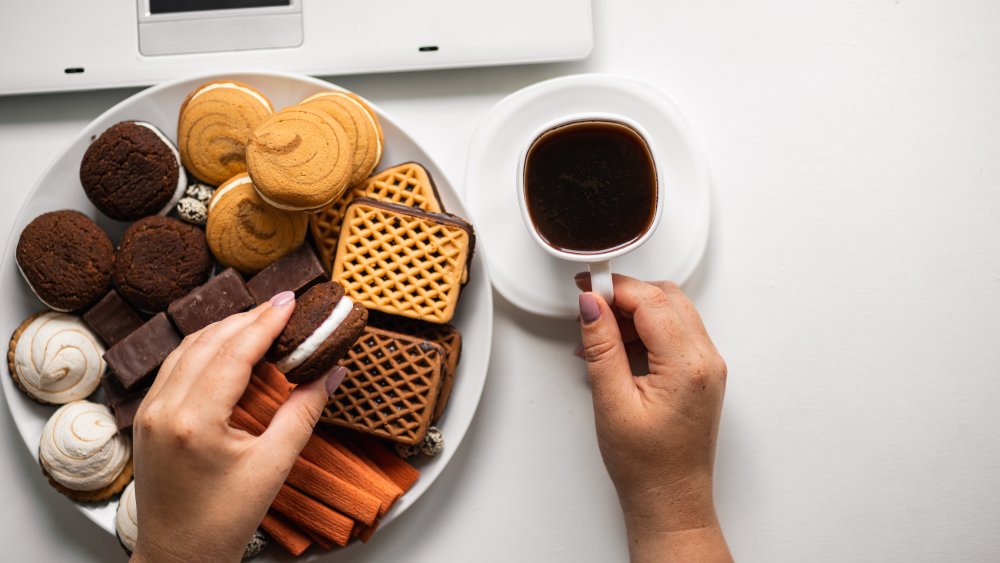Try This If You Can't Stop Stress Eating Before Bed
With the absolute dumpster fire of a year we've all had, combined with spending more time at home, endless Zoom calls, and constantly checking the news, it should come as no surprise that some are dealing with late-night stress eating. If you find yourself in a stare-off with the fridge (or worse, the Grubhub app) in the wee hours of the morning, you're definitely not alone. This is at least in part due to the effects that stress hormones like Cortisol have on the body; namely making us crave sugary, fatty foods (via Harvard Health).
However, giving in to the impulse to emotionally eat can be counter-productive in the long-term, causing weight gain and disturbed sleep, which can in turn increase appetite and stress, and thus stress-eating, creating a vicious cycle. Luckily, there are plenty of alternatives you can turn to instead of high-fat, high-sugar foods. For example, practicing mindfulness meditation may improve your overall stress levels and make you more aware of your food choices. Another great choice is exercise, which releases endorphins that can boost your mood and help reduce feelings of stress, in turn reducing the likelihood of you stress-eating (via Healthline).
More ways to conquer stress-eating
By far the simplest way to reduce your stress-eating is to remove the temptations from your immediate area. If you don't have those chips, cookies, or sweets within arm's reach, you're much less likely to wake up tomorrow with a food hangover. However, it's also important to understand where the underlying feelings of stress are coming from in order to address them in a sustainable way.
You can do this by keeping a food diary that tracks what you eat and how you're feeling, and finding exciting, interesting things to do when you feel stressed, or even just bored, that don't involve eating. Examples include: watching a movie, going for a walk, or calling a friend for a chat (via The Mayo Clinic). It could also help to plan out your meals, and a few snacks, in advance to reduce impulsive snacking on whatever sounds good when you're already hungry (via Healthline). Be sure those pre-planned meals include plenty of protein and green, leafy vegetables, since these will keep your hunger hormones more stable throughout the day (via Psychology Today). And, while you're planning out those healthy meals, take a moment to schedule time into your day to practice relaxation in whatever way works best for you, whether that's exercise, meditation, a hot bath, stretching, reading, or even just having a cup of tea. Practicing this kind of intentional self-care will help to reduce the drive to emotionally eat at the end of the day.

